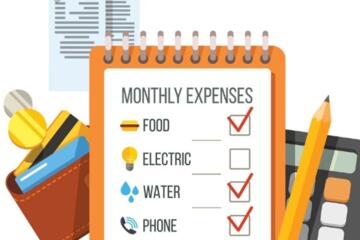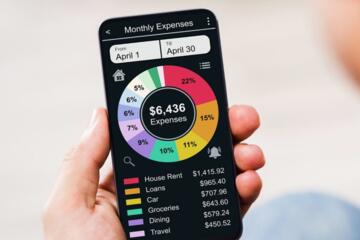We’ve all done it—jotted down a New Year’s resolution to “save more money” or “get out of debt,” only to lose steam a few weeks later. The intent is there, but the follow-through? Not so much. And that’s not because you’re lazy or undisciplined. It’s usually because the goal wasn’t built to last.
Financial goals that stick are realistic, specific, and tied to a bigger purpose. They give you a roadmap, not just a wish list. If you’ve been struggling to hit your money targets, you’re not alone—and you’re definitely not doomed.
Let’s break down how to set financial goals you’ll actually keep.
1. Start With Your “Why”
Before you even write down a number, ask yourself why you want to reach that financial goal. Clarity fuels motivation.
-
Are you saving for freedom from debt?
-
Do you want to stop living paycheck to paycheck?
-
Is your goal to travel, buy a home, or start a business?
Anchor your goals to something meaningful. Saving $5,000 is just a number—but saving $5,000 so you can quit your second job and spend more time with your kids? That’s powerful.
2. Make Your Goals SMART
The SMART framework makes your goals:
-
Specific
-
Measurable
-
Achievable
-
Relevant
-
Time-bound
Example:
Vague: “I want to save money.”
SMART: “I want to save $3,000 for a vacation by next July by setting aside $250/month.”
This version is clear, trackable, and has a deadline—which makes it much easier to stay accountable.
3. Break Big Goals Into Smaller Wins
Large financial goals can feel overwhelming, which leads to procrastination. Breaking them down into smaller, more manageable steps helps build momentum.
Instead of: “Pay off $10,000 in credit card debt.”
Try:
-
Pay off the smallest card first (debt snowball method)
-
Make an extra $100 payment this month
-
Transfer to a lower-interest card if available
Celebrate each milestone. Small wins trigger positive reinforcement and keep you going.
4. Prioritize Your Goals
Trying to save for a house, pay off debt, build an emergency fund, and invest for retirement all at once? You’ll burn out fast. Prioritize based on urgency and impact.
Suggested order of focus:
-
Starter emergency fund ($500–$1,000)
-
High-interest debt payoff
-
Full emergency fund (3–6 months of expenses)
-
Short-term goals (travel, car, home)
-
Long-term goals (retirement, college savings)
Tip: Work on one or two goals at a time so you don’t spread your focus too thin.
5. Automate Where You Can
If your goals depend on willpower, they’re more likely to fall apart. Automation removes the temptation to skip or delay.
Ways to automate:
-
Set up auto-transfers from checking to savings on payday
-
Use budgeting apps to categorize and track spending
-
Contribute to a retirement account directly from your paycheck
Even small automated contributions add up over time. Out of sight, out of spending.
6. Track Your Progress Regularly
You can’t manage what you don’t measure. Make it a habit to review your goals weekly or monthly.
What to check:
-
How much closer are you to your goal?
-
Are you sticking to your monthly savings/debt payoff plan?
-
Did any unexpected expenses slow you down?
Helpful tools:
Use spreadsheets, a physical tracker, or free apps like Mint, YNAB, or Monarch Money to visualize your progress.
7. Adjust As Needed—And Don’t Give Up
Life happens. You might lose a job, have a medical expense, or hit a rough month. That doesn’t mean your goals are a failure.
Smart goal-setters adjust, not quit.
If needed, revise your timeline, reduce your monthly contribution, or temporarily pause one goal to focus on another.
Reminder: Progress isn’t always linear. The key is to stay flexible and keep moving forward.
8. Reward Yourself (Strategically)
All work and no fun makes saving feel like punishment. Build in small rewards when you hit key milestones.
Ideas:
-
Reach your first $500 saved? Treat yourself to a $10 coffee or lunch.
-
Paid off a credit card? Take a free weekend day to relax or celebrate with a movie night.
Just make sure rewards don’t derail the bigger goal. Think celebration, not sabotage.
Final Thoughts: Goals Are Promises You Make to Yourself
Setting financial goals is easy. Sticking to them? That’s where the real work happens. But with the right mindset and structure, it becomes less about willpower and more about habit.
Takeaway:
Define a clear purpose, set SMART goals, automate your progress, and stay flexible when life throws curveballs. It’s not about perfection — it’s about persistence. With every step you take, you’re building a stronger financial future, one goal at a time.








